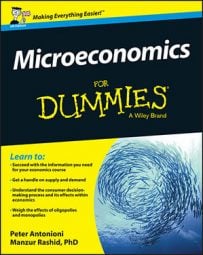Absolutely no one in the world is an expert on the future, because (in case you hadn’t noticed) it hasn’t happened yet. Enter microeconomics. Not knowing the future is a big problem if, for instance, you need to make an investment that may take 25 years to pay off, such as drilling an oil well or building a train network. The future is so highly uncertain, you have to take some very unusual steps to deal with it!
In the field of corporate strategy — which looks at how companies make long-term plans given competition and uncertainty — an unusual tool is available to help. It’s called scenario planning and the insight is that, when things are too complex or uncertain to model, you tell stories about them!
The word scenario in this context means a state of the world. In an uncertain future, many such states could apply. If you can assess — qualitatively or quantitatively — what makes them different, you can use a mixture of economic theory — what you know about how markets work — and other sciences and social sciences to give you a flavour of what those worlds are like.
When you’ve written those stories, you work back to look for things that may let you know which world you’re heading toward, so that you can adapt your strategy.
Scenario planning relies on a full, solid understanding of the working of markets, and so building in game theory, competition, co-operation, and all the lovely supply-and-demand stuff isn’t so out of the way. The main difference is that when you arrive at a model that satisfies your requirements, you keep asking ‘what if?’ to test your intuitions — what if the oil price is high, what if people wear computers on their wrists, and so on.
Economists often use scenarios as a complement to their other tools of strategy — they were originally invented to find a language to use to talk about nuclear war, and so they fit very well with game theory, which was developed for the same reason. Scenarios have proved highly effective in the corporate world: the most famous example is Shell’s ability to take advantage of the 1973 oil price shock.
The difficulty, though, is that you need a link between drawing up the scenarios and developing and implementing your strategy. One problem is that if communication between planners and the wider company breaks down (as sometimes happens), how good your stories are doesn’t matter, because no one is using your insights.

